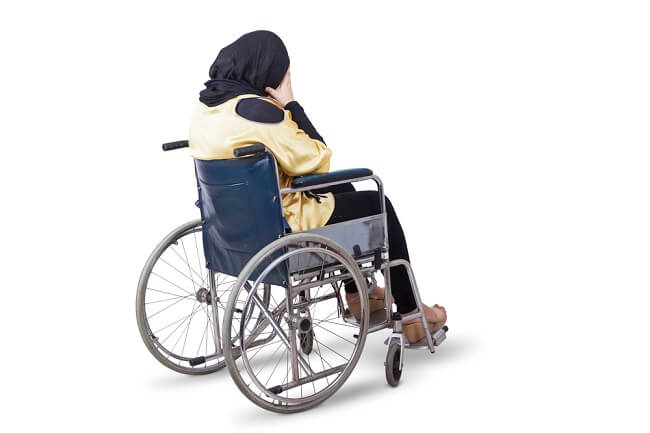Some pregnant women may still be confused and not sure whether to give birth with the help of an obstetrician or midwife. Before making this choice, it is better for pregnant women to find out in advance about the role of obstetricians and midwives during the delivery process.
Determining the right place and health workers to help pregnant women during childbirth is an important thing that needs to be considered carefully. To make it easier to determine, understand in advance what tasks and health services can be provided by midwives and obstetricians.

Furthermore, pregnant women can make choices according to the delivery plan they want to undergo and of course the condition of the pregnant woman.
Difference between Obstetrician and Midwife
The following are the different roles and services of obstetricians and midwives that pregnant women need to know:
1. Educational background taken
An obstetrician is a specialist doctor who has graduated from general medical school and completed specialist education in obstetrics and gynecology as well as health of the female reproductive system. Obstetricians are also often referred to as obstetrics and gynecology (obgin) specialists.
Meanwhile, midwives are not doctors and do not have medical education. Midwives are trained medical personnel who have completed midwifery education, namely the study of pre-pregnancy care, pregnancy, delivery, and postpartum care.
2. Authority in handling patients
Obstetricians have the authority to handle normal pregnancies and deliveries as well as those with high risk or complications, while midwives only treat normal pregnancies without any disruption or risk of serious complications.
Obstetricians also have the expertise to perform caesarean sections or assisted delivery techniques, such as episiotomy, forceps, and vacuum. Obstetricians are also able to perform several other medical procedures such as administering epidural anesthesia or drugs to treat labor pains.
Meanwhile, midwives are only authorized to assist in normal delivery and take measures to assist with normal delivery, such as an episiotomy.
Due to fewer fields and work competencies, midwives will refer pregnant women to obstetricians if pregnant women have problems during pregnancy that cannot be handled by midwives.
3. Actions and checks carried out
In general, midwives can only perform routine prenatal check-ups on pregnant women and healthy and normal fetuses. For problematic pregnancies, treatment is carried out directly by an obstetrician.
The following are some types of examinations and actions that can be carried out by obstetricians when dealing with pregnant women:
- Conduct prenatal check-ups to monitor the health of the mother and fetus, for example physical and supporting examinations, such as blood tests, urine tests, and ultrasound examinations during pregnancy up to delivery
- Provide important information to pregnant women about the condition of their pregnancy as well as tips or education so that pregnant women stay healthy during pregnancy
- Overcoming complaints that are commonly felt during pregnancy, for example morning sickness, back and leg pain, heartburn, and easily tired
- Prescribing medicines and pregnancy supplements to overcome the complaints experienced by pregnant women and help complement nutritional needs during pregnancy
- Provide an explanation and choice of the best delivery plan for pregnant women
- Caring for and monitoring the condition of pregnant women and fetuses during pregnancy, childbirth, and after delivery
4. Location and cost of delivery
As trained health professionals, midwives can assist the delivery process in hospitals, maternity homes, or at the homes of pregnant women. Meanwhile, obstetricians generally only serve pregnancy check-ups and delivery processes in hospitals or maternity clinics.
This is because doctors need special equipment and equipment if at any time they have to take action when the delivery process is disrupted, for example in cases of fetal distress or prolonged labor.
There are differences in competence as well as the handling and facilities needed, making the cost of consulting services and delivery costs at midwives and obstetricians also different. Generally, consultation fees and delivery fees at obstetricians are more expensive than midwives.
So, Which is Better?
In the end, the decision to give birth with the help of an obstetrician or midwife is in the hands of pregnant women. Whatever the decision, it should be adjusted to the needs and other factors, such as the delivery process you want to undergo, the condition of the pregnancy, the hospital or clinic where the pregnant woman will give birth, and financial conditions.
If pregnant women are more than 35 years old or have medical conditions such as high blood pressure, heart disease, or have experienced serious complications in a previous pregnancy, it is better for the pregnant woman to see a gynecologist so that the condition of the pregnancy can be continuously monitored until the time of delivery arrives.
If the pregnant woman is in good health and the pregnancy is also running normally, giving birth with the help of a midwife can be an option.
Under certain conditions, pregnant women can combine the two, namely by regularly checking their pregnancy with the midwife and occasionally carrying out more specific examinations to the obstetrician, such as ultrasound examination.
If pregnant women decide to choose a midwife, the thing that needs to be considered is to make sure the selected midwife has a Midwife Work Permit (SKIB) and a Midwife Practice Permit (SIPB). Midwives must also have good and positive credibility.
Pregnant women can also find out in advance the background of the obstetrician and midwife. It is also important for pregnant women to pay attention to the distance from the hospital or delivery place for comfort during childbirth.
So basically, choosing to give birth assisted by an obstetrician or midwife needs to be adjusted to the conditions of the pregnancy and fetus. If the pregnant woman and the fetus are healthy or there are no problems in pregnancy, the pregnant woman can give birth assisted by a midwife or obstetrician.
However, if the pregnant woman's condition is problematic or the fetus has certain abnormalities or conditions, then the delivery process can only be assisted by an obstetrician.









